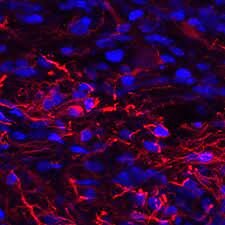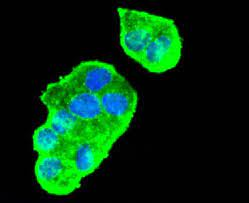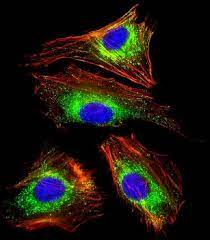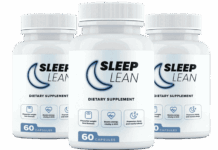In pharmaceutical research, custom antibodies function as specialized tools designed to assist scientists in better understanding diseases, discovering new treatments, and expediting the process. They operate by targeting specific components of diseases, providing researchers with a clearer understanding of internal bodily processes and aiding in identifying areas to prioritize for drug development. This targeted approach enables researchers to interpret complex biological processes and identify potential targets for therapeutic intervention, ultimately advancing the development of effective treatments.
Custom antibodies are important because they make it easier for scientists to see what’s going on in diseases and find ways to fight them. They’re like tailor-made keys that unlock specific parts of diseases, making it easier for researchers to find treatments. With custom antibodies, scientists can explore the intricate details of diseases, understand how they develop, and ultimately develop better treatments to improve human health. These specialized tools are crucial in accelerating drug discovery and development processes, offering researchers insights that traditional methods may not provide.
Understanding Custom Antibodies
 Custom antibodies are proteins specially crafted to target specific antigens, empowering researchers to detect, quantify, and isolate proteins of interest. These antibodies possess high specificity and sensitivity, crucial for accurately detecting and pinpointing proteins within cells and tissues. Through their precise binding to target antigen, researchers are equipped with a potent instrument for delving into disease mechanisms and pinpointing potential therapeutic targets.
Custom antibodies are proteins specially crafted to target specific antigens, empowering researchers to detect, quantify, and isolate proteins of interest. These antibodies possess high specificity and sensitivity, crucial for accurately detecting and pinpointing proteins within cells and tissues. Through their precise binding to target antigen, researchers are equipped with a potent instrument for delving into disease mechanisms and pinpointing potential therapeutic targets.
These antibodies are typically generated through processes like hybridoma technology or phage display, ensuring their effectiveness through rigorous optimization. For example, in hybridoma technology, immune cells called B cells are fused with myeloma cells to produce hybridoma cells that continuously churn out antibodies targeting specific antigens (Kohler & Milstein, 1975). This meticulous process guarantees that the resulting antibodies are tailored to bind with high affinity and specificity to their targets.
The Process of Custom Antibody Production
The process of custom antibody production begins with selecting antigens of interest, which could range from proteins to peptides or small molecules. Collaboration between researchers and experts is crucial for optimizing the antigen for antibody production, ensuring the final product meets the required standards of specificity and sensitivity. Advanced techniques such as phage display or hybridoma technology are employed to generate custom antibodies with high affinity and specificity for the target antigen (Chames et al., 2009). These antibodies are then rigorously tested and validated to ensure their effectiveness in various applications, including Western blotting, immunohistochemistry, and flow cytometry.
Advantages of Custom Antibodies in Pharmaceutical Research
 Custom antibodies provide numerous benefits compared to commercially available antibodies. Their ability to specifically bind to target antigens allows for precise detection and localization of proteins within cells and tissues, offering researchers valuable insights into disease mechanisms. This specificity is essential for accurately identifying and studying proteins involved in various biological processes and disease pathways.
Custom antibodies provide numerous benefits compared to commercially available antibodies. Their ability to specifically bind to target antigens allows for precise detection and localization of proteins within cells and tissues, offering researchers valuable insights into disease mechanisms. This specificity is essential for accurately identifying and studying proteins involved in various biological processes and disease pathways.
Custom antibodies are crucial in validating potential drug targets and biomarkers, significantly contributing to developing effective therapies. Through confirming the presence and function of specific proteins, custom antibodies assist researchers in assessing the potential efficacy and safety of novel drug candidates before they progress to clinical trials. This validation step is crucial for ensuring the success of drug development efforts and minimizing the risk of expensive failures in the later stages of the process.
A study published in the Journal of Immunology demonstrated the efficacy of custom antibodies in targeting specific cancer biomarkers, leading to the development of novel therapeutic strategies for cancer treatment (Smith et al., 2019).
In addition to their role in drug discovery and development, custom antibodies find applications in various research areas, including basic science, diagnostics, and personalized medicine. Their versatility and specificity make them invaluable tools for researchers seeking to unravel the complexities of biological systems and develop innovative solutions to address human health challenges.
Applications of Custom Antibodies in Drug Discovery
 Custom antibodies find wide-ranging applications in drug discovery, target identification, biomarker discovery, and validation, as well as in basic research, clinical diagnostics, and therapeutic development. Their versatility makes them indispensable tools for researchers across various fields.
Custom antibodies find wide-ranging applications in drug discovery, target identification, biomarker discovery, and validation, as well as in basic research, clinical diagnostics, and therapeutic development. Their versatility makes them indispensable tools for researchers across various fields.
Example: In infectious disease research, custom antibodies are crucial in developing diagnostic tests for emerging pathogens. Targeting specific antigens on the pathogen’s surface, these antibodies facilitate accurate and rapid detection of infections, thereby enabling timely intervention and control measures.
How Custom Antibody Services Speed Up Drug Development
Custom antibody production services offer comprehensive solutions to researchers’ needs, from antigen design to antibody purification and validation. Emphasizing quality and reliability, these services ensure that antibodies undergo rigorous testing to meet the highest standards. Companies like Boster Bio provide custom antibody production services tailored to researchers’ specific requirements, enabling them to accelerate their research efforts and significantly contribute to drug discovery and development.
Example: A pharmaceutical company partners with a custom antibody production service to generate antibodies targeting a novel therapeutic target for diabetes. By outsourcing antibody production, the company can leverage specialized expertise and resources, accelerating the development of potential treatments for the disease.
Impact of Custom Antibodies on Personalized Medicine
Custom antibodies play a crucial role in personalized medicine by facilitating the development of targeted therapies tailored to individual patients’ needs. Their ability to precisely target specific molecules makes them invaluable for more effective and personalized treatment options.
Example: In oncology, custom antibodies are vital in identifying tumor-specific antigens for personalized cancer immunotherapy. Targeting antigens unique to individual patients’ tumors, these antibodies have the potential to initiate potent immune responses against cancer cells while sparing healthy tissues, thereby minimizing adverse effects.
The future of custom antibodies holds promise for further technological advancements and their continued role in accelerating drug discovery and development processes. With ongoing research and development, custom antibodies are poised to continue contributing significantly to improving human health and advancing biomedical science. As our understanding of disease mechanisms grows and new therapeutic targets emerge, custom antibodies will remain indispensable tools for researchers to develop effective treatments for various diseases.


















